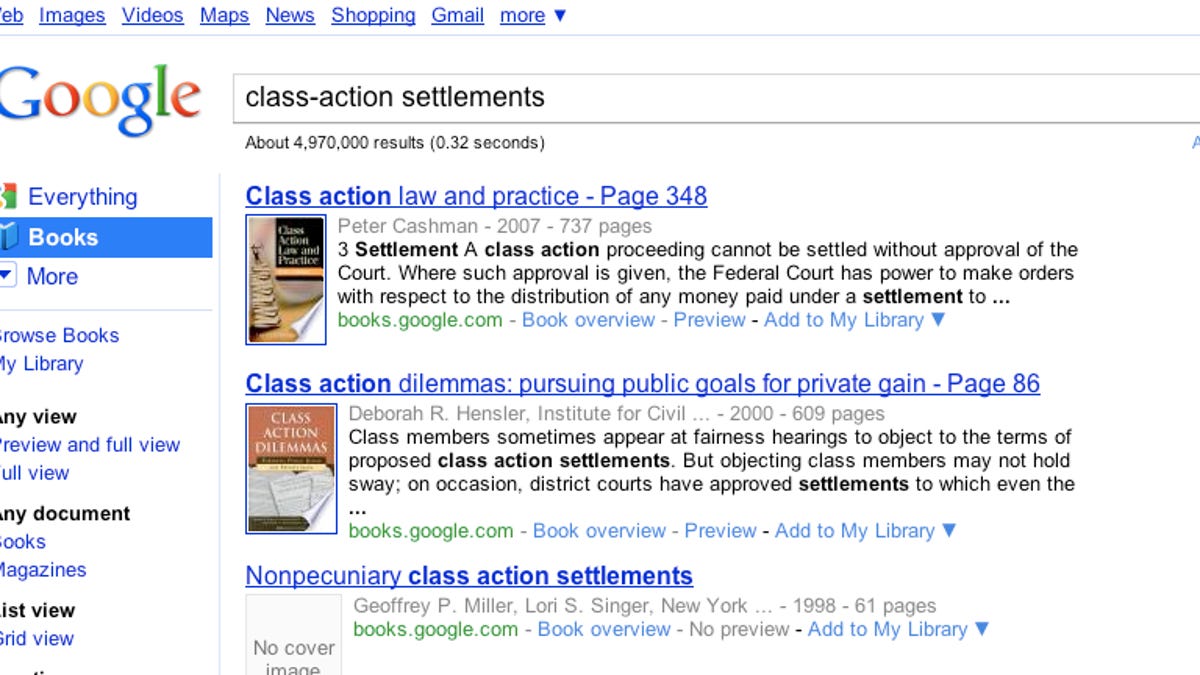Google Books case still a run-on sentence
Four months after a final hearing, and nearly 18 months since Google and authors' groups first reached a settlement over Google Books, the case is still in limbo.

At this point, Google and the Authors Guild must feel like they are in a James Joyce novel.
The Google Books case drags on with no hint of when the six-year dispute might finally be settled, four months after a final hearing was supposed to decide the issue once and for all. Google and the plaintiffs--representatives of authors and publishers--agreed to settle the massive case in October 2008 but delays after delays have prevented Google from offering out-of-print yet copyright-protected books in its Google Book Search product.
Representatives for the U.S. District Court for the Southern District of New York--which is handling the case--declined to comment on whether the matter is even close to being resolved. Google likewise had nothing to share on when the case might finally be resolved, saying it had heard nothing from the court since the final hearing wrapped up in New York in February.
"The timing for approving (or rejecting) the settlement has not struck me as particularly unusual, especially given the complexity of the case, the voluminous submissions, and the many forcefully argued positions on multiple sides," said Eric Goldman, a professor at Santa Clara University who tracks legal matters in the Internet industry.
At issue is whether Google will be allowed to display and sell digital copies of books that have gone out-of-print due to lack of demand but are still protected by U.S. copyright law. Google first began scanning such books earlier this decade, announcing plans to create the world's largest digital library in 2003. However, the company was sued by groups representing authors and publishers in 2005, and the case has dragged on ever since, despite the October 2008 settlement agreement.
The judge is considering whether the settlement overstepped its bounds in granting the right for Google to offer those types of books in Google Book Search: something Google's competitors and critics argue is a far-too-sweeping use of a class action settlement to essentially create law.The Department of Justice has weighed in on the settlement, initially blocking a first proposal and later voicing concerns that the revised settlement still might raise antitrust issues.
In the meantime, the e-book market continues to take off with the success of Amazon's Kindle and the early interest in Apple's iPad. Google has said it plans to open a Web-based digital book store sometime in June or July called Google Editions, which is focused on books that Google clearly has the right to sell either through agreements with publishers or because the works have entered the public domain.
With the summer vacation season just starting, it's not clear whether Google's long literary struggle will be wrapped up anytime soon. The New York Times recently reported that the decision could arrive within "months," but the only person who really knows is Judge Denny Chin, and he's not talking. Complicating matters is the fact that Chin was recently nominated and confirmed for a spot on the U.S. Appeals Court, although he remains in charge of the Google case.
Given the high-profile nature of the case among authors, librarians, privacy advocates, and the U.S. government, it's likely Chin is crafting a very comprehensive and detailed opinion in anticipation of further review from appeals courts, said Deborah Hensler, a professor at Stanford and an expert on class action lawsuits. She also said she wouldn't be surprised if the Supreme Court wound up considering this case, although cautioned that predicting the types of cases that will get considered at the highest court in the U.S. can be tricky.